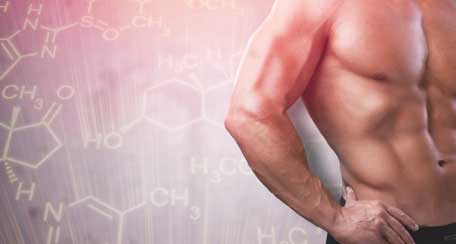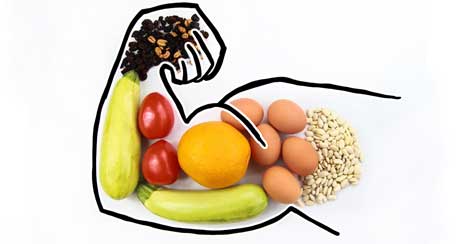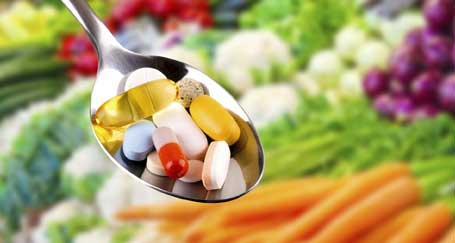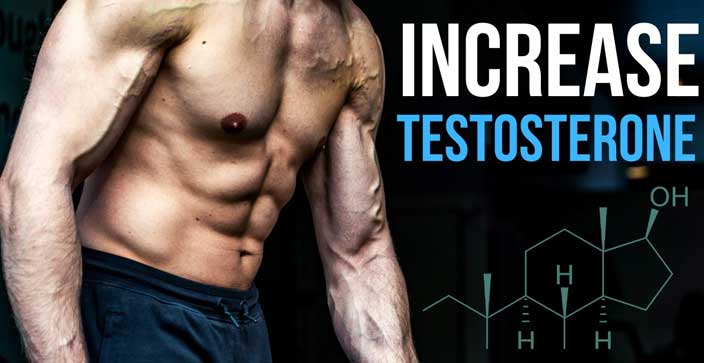Do you find yourself too irritated, too busy or too distracted to have sex? Or you just do not get enough desire for sex? If yes, then you must be like most of the men who just feel the same thing even after getting rest and relaxed.
This is not now, the uncommon condition that most of the men of the normal age are having low testosterone that is responsible for all these feelings. Testosterone is actually a sexual hormone that is produced in the human body, in both males and females, but is mostly required by men to carry out their important functions of the body. Testosterone is the hormone of prime importance that is necessary for the thing that you need in the bed.
If you are not getting what I am talking about, then you should explore the article to find the solution of your problems.
Testosterone – The Fountain Of Youth:

Testosterone is the most important type of the sexual hormone that is produced in men and women, but in the smaller quantity. It is the primary male sex hormone that is produced in larger quantity in testes and in adrenal glands in smaller quantities. Testosterone is not only responsible for libido alone but also it is responsible for the number of many other functions. It is the hormone that is responsible for functions like fat metabolism and fat distribution in body, it is responsible for maintaining the healthy sex drive and libido in men, it is also taking part in the maintaining the healthy bone mass and muscle mass of the body of males. The testosterone is also the important hormone that helps in the development of the secondary sex characteristics in men like the growth of facial hair, broadening of the shoulders and deepening of the voice.
Besides this, the testosterone is also needed in the body to maintain the healthy reproductive system of the males and it also masculinizes the brain in the developing fetus.
Understanding Lower Testosterone Levels:
As per the studies conducted by the number of the research centers, the normal range of the testosterone levels is between 300 to 700 ng/dL. It is the healthy range that is responsible to carry out all the healthy body activities mentioned above in the article. However in general, the normal testosterone level in the healthy man is about 689 ng/dL.
It is necessary for the person to have the testosterone levels in between this normal range. But the person having the testosterone levels below 300 ng/dL is considered to have low T levels. There are a number of symptoms that doctors relate to Lower T levels. These are:
- Fatigue
- Low Sex Drive
- Erectile Dysfunction
- Increase in body fat
- Decrease in the Muscle Mass
- Depression
- Changes in Sleep Pattern
It is the fact that the testosterone levels starts to decline as the man ages after 30 years. It is estimated by the studies of Mayo Clinic that Testosterone levels decrease after 30 years of age with the ratio of 1 percent each year. However, the persons with the age below less than 30 years too, suffer from low T levels. And in this context, modern lifestyle is the worst enemy of their T levels. To know more about the testosterone , read here: https://www.fair-news.de/2821694/testonyl-test-neue-testosteron-tropfen-auf-dem-markt.
Testosterone Levels and Modern Lifestyle:

If you are looking for the naturalway to build testosterone levels, then start looking at your daily habits. Lifestyle and the daily habits of the person truly influence the testosterone levels of the person. Here are following lifestyle changes through which you can increase your Testosterone levels naturally.
Natural Ways to Increase Testosterone in Males:
Though you can increase the status of your Testosterone with the help of supplements and Testosterone therapies, but these are of no use if you do not make changes in your lifestyle. If you want to make a difference, then here are the ways through which you can boost your Testosterone levels naturally:
Stay Trim:
Not only for your Sexual health, you need to cut your extra body fat in order to stay healthy and to increase your longevity. Extra body fat and the obesity are the killers of Testosterone. According to the recent studies, the obese teen boys have half the levels of testosterones than the normal teen boys. That means obesity is directly related to your sexual health. So it is really necessary for you to trim all your extra fat from the body in order to boost your Testosterone levels naturally. You can add physical activity or regular workouts to remove all the extra fat from you that are the killers of your T hormones.
Get Adequate Sleep:
Sleep is the most important factor that can influence your testosterone. Not only testosterone but it also influences most of the male hormones. One study showed that a sleep of 5 hours in one week can drop the T levels at the rate of 10 to 15 percent. This means, you need to take the recommended sleep hours that is 8 hours exactly.
Relax Like a pro:
Stress is the major driver for the low testosterone. It not only effects your physical and mental health but also, it can affect your sexual health too. The stress related hormone can disturb your hormonal balance. That is not only the case, but stress hormones also produce the testosterone breaking enzymes that can cause the major decline in your T levels. So it is very necessary for you to relax and do yoga to strengthen your system.
Eat Wisely:
Diet is another factor that can influence your Testosterone levels widely. With the proper and adequate diet made for the testosterones, you can boost your T levels really easily. For this, you need to add the foods that are rich in Vitamin D, proteins and saturated fats. Some of T boosting foods are Shrimps, Strawberries, oyster, eggs, broccoli and garlic etc.
Take Your Vitamins Seriously:

Vitamins are the major nutrients that affect the T levels badly. They are like the fertilizers to your androgens so that they can produce more Testosterone. In the context of vitamins, you need to take adequate quantity of Vitamin D, E and A. for this you can add the dietary sources of vitamins or you can take the supplements that are tailored for specific Vitamins.

